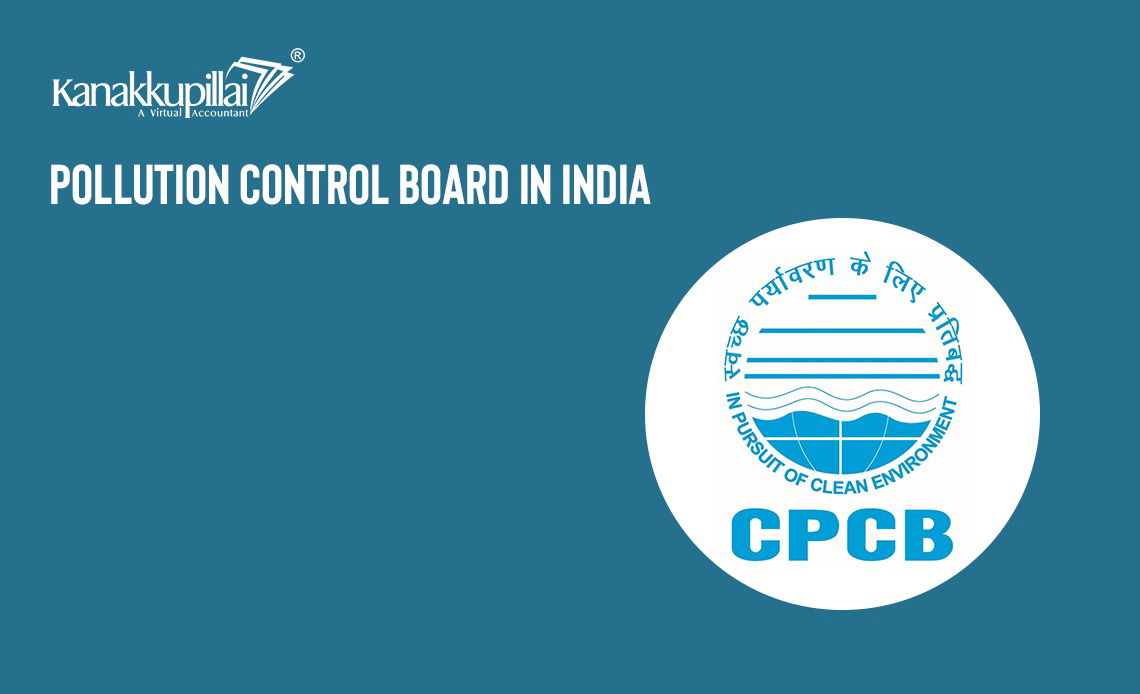The pollution control board has its divisions in India as central and state pollution control boards; they are responsible for the execution and control of regulations and provide guidelines to control pollution. These two boards are associated and function for the people’s well-being and safeguard the nature that we depend on. This statutory organization operates under the Ministry of Environment, Forest and Climate Change. They are the only government body helping the people to know about pollution. How humans create an imbalance in nature and its effect have all been shown, which has made the government’s primary requirement to develop this type of board to control and take action.
PURPOSE: To monitor India’s air and water quality control and ensure they aren’t affected by human actions.
Central Pollution Control Board
In India, this board will guarantee all the ecological quality and pollution-related issues in this act as a statutory body laid out in 1974 under the Prevention and Control of Pollution Act 1974.
This board provides field and technical services to India’s environment and forest ministry.
Powers and Functions:
This board has its powers to enforce and implement the laws to control pollution, and other powers and functions of this board are:-
- Pollution standards: This board will be responsible for setting emission and pollution control standards in various industries and sectors, such as limits for air and water pollution, sound levels, and safety for handling hazardous substances.
- Monitoring: This board will conduct regular monitoring and assessment periods to cross-check the reports submitted by the sector or industries regarding air quality, water quality, and noise level.
- Compliance and remedial action: This board has separate powers to raise complaints about any sector and to make changes if any of its actions affect the environment’s well-being.
- Public awareness: They are also responsible for raising public awareness about the pollution control board and its impact on the environment and human health. Hence, they often conduct seminars, workshops, and public volunteering for pollution control efforts.
- Enforcement of laws: This board can enforce the laws regarding pollution sectors, make regulations on the spot if any misleading happens, and impose penalties.
Some powers and functions vary between the state and central boards of pollution control since both have their jurisdictions and different authorities within their respective board.
Role and Programs:
Role:
- They advise the central government on any matter affecting the environment due to pollution and give suggestions on improving and developing the quality of air, water, etc. They will also perform functions as prescribed by the government of India.
Programs:
- The Pollution Control Board was set up to control pollution (air, water, and land). It even advises the government on any matter concerning pollution issues.
- The National Air Quality Monitoring Program (NAMP) generally acts as a tool for maintaining air quality and ensuring compliance with rules regarding rule violations.
- National water quality monitoring: This program generally acts as a tool for maintaining
Water quality and collecting people’s concerns regarding water pollution to act on will be the major roles of this program.
Key Laws and Acts:
- The Air (Prevention and Control of Pollution) Act of 1981 helps prevent and control air pollution and raises people’s awareness of how it could affect them.
- The Water (Prevention & Control of Pollution) Act, 1974 guides regarding water pollution control and its prevention and governs the rules and regulations related to it.
- E-Waste (Management) Rules, 2016: This rule applies to businesses that generate electronic waste and guides them on handling it safely since its decomposition time is long.
- Biomedical Waste Management Rules, 2016 regulates the biowaste generated in medical fields.
- The Hazardous and Other Wastes Rules, 2016 cover dangerous wastes that should be kept out of people’s reach, and this act will ensure the proper disposal of these wastes.
- The Environment (Protection) Act of 1986 will look after several aspects required for protecting the environment.
Registration Process:
Steps for the registration process:
- Filling the application
- Attaching required document
- Status of the application
- Issuing of the documents
1. Filling the application
To file registration under the pollution control board, you must provide a few basic details and upload the form on the website for the businesses to which this is applied.
2. Attaching the required document
All the essential documents (adhaar, pan, bank statement, etc.) must be attached to the application at the time of submission.
3. Status of the application
At this stage, our team will explain the application you filled out, tell you about the waiting time, and indicate if any changes are required.
4. Issuing of the documents
After completing all the above processes, they will issue a registration certificate.
These are the process for the application of the pollution control board.
Conclusion
The pollution control board plays a vital role in monitoring pollution levels in the nation through its measures and regulations. This board also helps us focus on sustainable development, and they conduct regular inspections and set industry standards and regulations. They also concentrate on creating awareness among the people regarding its negative environmental impact. Overall, the pollution control board makes significant efforts to reduce pollution and safeguard the environment for the present and future generations.





